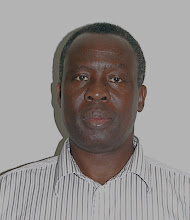In the year 2011 there will be a general election in Uganda to elect the president for the next five years. Museveni has been in power since January 26 1986. That gives him 25 years of continuous rule as president of the country. The twenty five years started with "fundamental change" philosophy. That fundamental change could not have been the sanctity of life because people were subjected to even worse inhuman and traumatic conditions like 'kandoya' and being labeled 'biological substances.' Killing became an administrative policy and continued to displace people in the northern part of the country, particularly the Acholis. This lead to an obvious offshoot of self defense that grew into a large group of fighters named Lord's Resistance Army. This resistance was quickly converted into a scapegoat of varying military expeditions into neighboring countries with the aim of entrenching the NRM into power. And this is what has continued for the last 25 years.
The NRM really wanted no structure for the democratic governance of the country. All they wanted, and still want up to now, is to stay in power perpetually. For first three years after they came to power in 1986, it was nothing but war in the north and when they reached the second year they started talking about first writing a new constitution. That took care of the first five years.
The second five years was now the official first term of five years that NRM was in power. At this time the country was effectively divided into two parts; the north comprising of areas of Teso northwards, and the southern parts in which there was peace. Sham elections were carried out in this northern region with the people on the run through war-mongering. Towards the end of the second term which was NRM's first official term, NRM was using a combination of threat of the return of the Banyanya to keep the southern folks in their support and the fact that this next election would be the last term for Museveni in power. So, after ten years in power, Museveni was now 'elected' to his last term in office. Early in the eleventh and twelfth years in power, it became clear that two terms was not really enough for the NRM even though it was their third term in office. They began agitating for change to the constitution so that Museveni could run for as long as he wanted. That constitution is due to be changed back to two five-year terms for a presidency once Museveni is no longer running for office.
The way the constitution was changed brought about great fear in many of NRM members as it put them in a bad light. Elections were held in such a way that the NRM always had a upper hand especially with the war in the north and displacement of the population. A new party was formed as opposition to NRM and it was called FDC, Front for Democratic Change lead by Dr. Kizza Besigye, a one time confidant and personal doctor of President Museveni.
Museveni has done a lot during his twenty five years in power. Some of the plans could really have brought about 'fundamental change' for the better to the people. But corruption ate away at every opportunity and impunity destroyed all chance of correcting mistakes being made by the military wings of the NRM. He also introduced many unworkable ideas that should have been left to the local leaders. Museveni wanted to develop a rich middle class but because the administration was top heavy, nothing trickled down to the ordinary person as corruption diverted all resources to his cronies. The irony is that these are the kind of things which Museveni would start a bush war for, but now he cannot do it since he is in state house.
So, what kind of votes will Museveni get and would it be enough to win the election? To answer this question one needs to look at the composition of the army and of the civil service personnel. Whenever there is a vibrant opposition, the army trembles and feel threatened. The same thing applies to the civil servants. The men carrying the ballot boxes and guarding it cannot be trusted to remain impartial. They easily get emotionally involved because they have vested interests in maintaining the status quo.
There are no policies the NRM have promulgated and carried out successfully to remind people that they deserve to remain in office. That is why UPC is doing great service to the country by empowering the people with knowledge and information to form the basis of the next development plan. People want freedom and security so they can develop themselves according to their abilities. The UPC detractors say that UPC will not win and should have stayed in the IPC but the party is better where it is. When the people know their rights and stand up for them, then there will be a fundamental change in the country. This land is ours.
Subscribe to:
Post Comments (Atom)


No comments:
Post a Comment